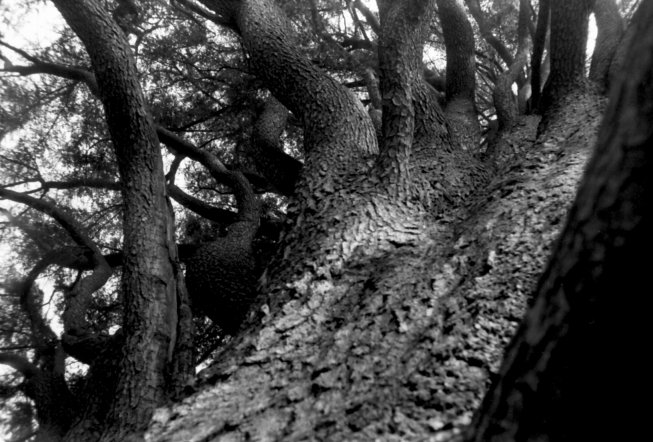Song of the Suburb (1918)
I love that garden, suffocated
and resenting what the factories spew,
and I'm pleased my life's surrounded
by this indifferent view.
I enjoy the time when the breeze turns about -
morning and afternoon people snacking,
a young girl with her breasts bulging out
and a song that leaves me crying.
And the humble man who shows the air
a valient forehead and the eye of a serf,
cloth sandals cover his feet, beret, his hair,
blue smock on his back, snack tied in a kerchief.
Here I see the world opening wide,
cold and terrible like death's door.
And my heart like a little bell inside
is so miserly and poor!
I scrape off flattery like rust
and on my face there's no veil.
Without the slightest distrust
I can look at my naked soul.
I love the desolate garden;
the tired peach tree, dying,
blood red wine, tomato golden,
and the silver herring.
I follow your avid hobby
o you of the good teeth, strange men;
you'll go back to your misery
a little more content.
Long live evil, long live pain,
tear, rose, pearl, and kiss.
Long live this heart and these veins,
and this eye that sees nothing amiss.
Fiery dress ripped by delight,
dance for me! Loyal man,
come, let's smoke our pipes
on the virginal lawn.
Tell me the living wonders
of your work, your agony.
Below the concert of the stars
let's go on smoking tranquilly.
|
Cançó de Suburbi
M'estimo l'horta escanyolida
que de la fàbrica es ressent,
i em plau voltar la meva vida
d'aquest paisatge indiferent.
I em plau l'estona virolada:
gent d'amanida i berenar.
Una donzella espitregada
i una cançó que fa plorar.
I l'home humil que a l'aire ensenya
un front valent i un ull esclau,
i va amb la gorra i l'espardenya
i el farcellet i el vestit blau.
Aquí jo veig que el món se m'obre
fred i terrible com la mort.
I és tan mesquina i és tan pobra
la campaneta del meu cor!
Dels llagoters fuig la corrua
i en el meu rostre no hi ha vel
i em puc mirar l'anima nua
sense cap mica de recel.
Estimo l'horta desolada;
el presseguer ensopit que es mor,
i l'arengada platejada,
porró de sang, tomàquet d'or.
Jo vaig seguint la vostre dèria
homes estranys de bones dents,
que tornareu a la misèria
una miqueta més contents!
durin els mals, durin les penes,
llàgrima, rosa, perla i bes.
duri aquest cor i aquestes venes,
duri aquest ull que no veu res.
vestit encès que el goig estripa,
dansa per mi! Home lleial,
vine, fumem la nostre pipa
damunt de l'herba virginal.
Digue'm les vives meravelles
del teu treball, del teu turment.
Sota el concert de les estrelles,
anem fumant tranquil.lament.
|
